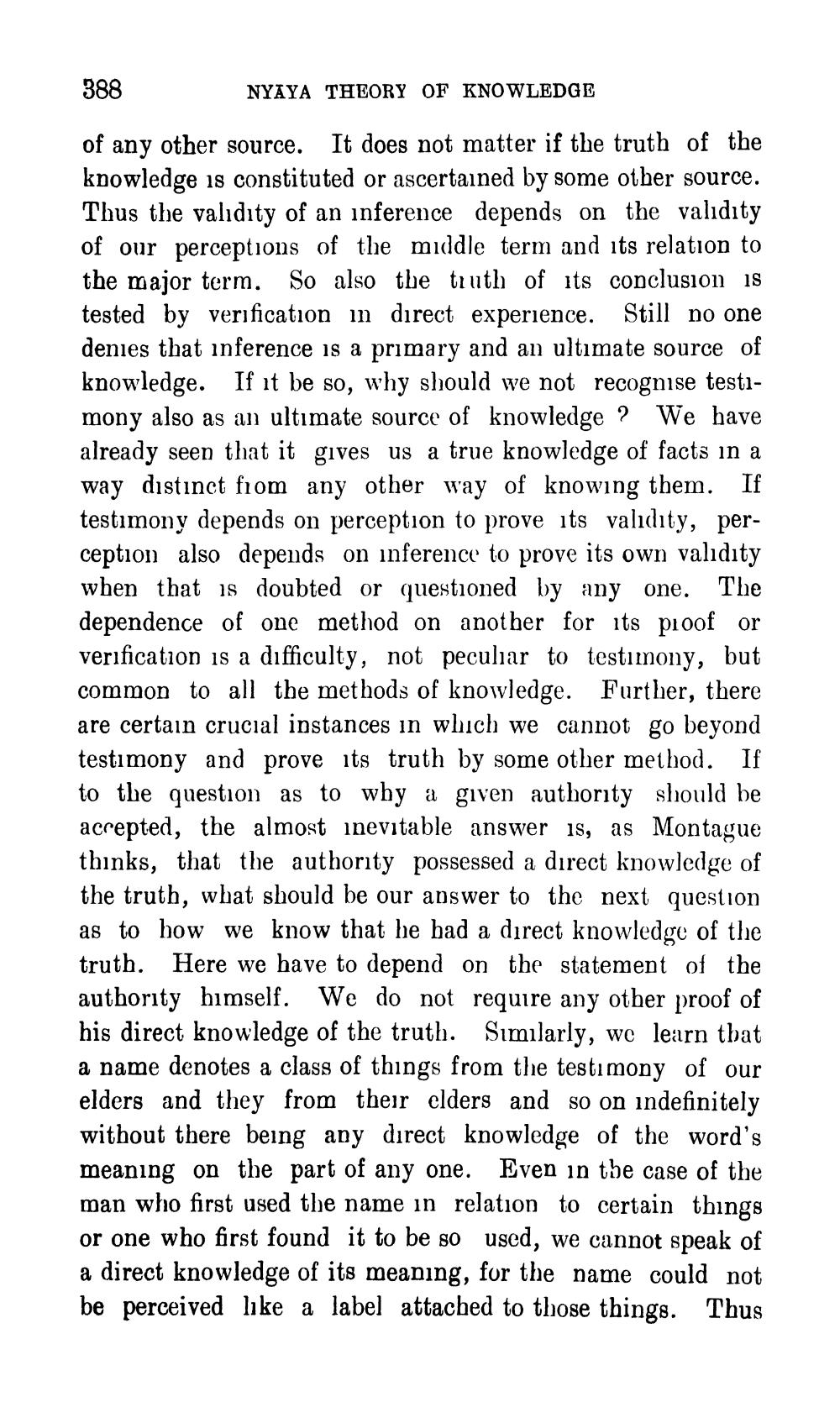________________
388
NYAYA THEORY OF KNOWLEDGE
of any other source. It does not matter if the truth of the knowledge is constituted or ascertained by some other source. Thus the validity of an inference depends on the validity of our perceptions of the middle term and its relation to the major term. So also the truth of its conclusion is tested by verification in direct experience. Still no one denies that inference is a primary and an ultimate source of knowledge. If it be so, why should we not recognise testimony also as an ultimate source of knowledge? We have already seen that it gives us a true knowledge of facts in a way distinct from any other way of knowing them. If testimony depends on perception to prove its validity, perception also depends on inference to prove its own validity when that is doubted or questioned by any one. The dependence of one method on another for its proof or verification is a difficulty, not peculiar to testimony, but common to all the methods of knowledge. Further, there are certain crucial instances in which we cannot go beyond testimony and prove its truth by some other method. If to the question as to why a given authority should be accepted, the almost inevitable answer is, as Montague thinks, that the authority possessed a direct knowledge of the truth, what should be our answer to the next question as to how we know that he had a direct knowledge of the truth. Here we have to depend on the statement of the authority himself. We do not require any other proof of his direct knowledge of the truth. Similarly, we learn that a name denotes a class of things from the testimony of our elders and they from their elders and so on indefinitely without there being any direct knowledge of the word's meaning on the part of any one. Even in the case of the man who first used the name in relation to certain things or one who first found it to be so used, we cannot speak of a direct knowledge of its meaning, for the name could not be perceived like a label attached to those things. Thus




